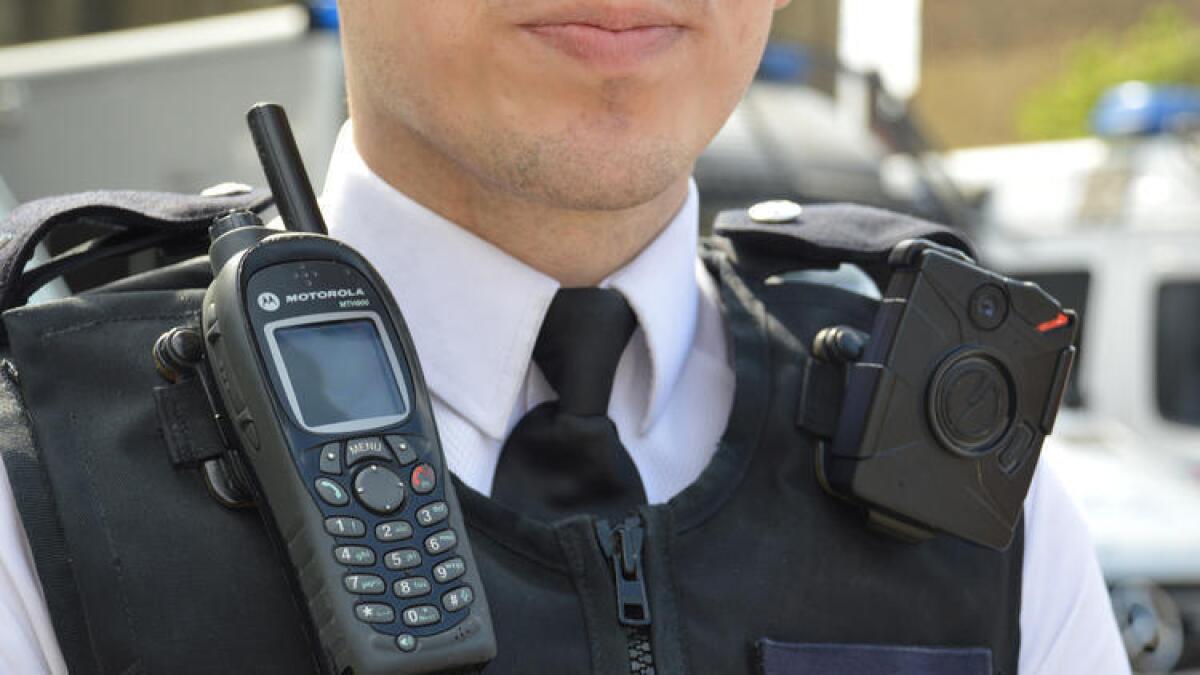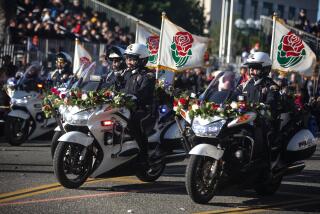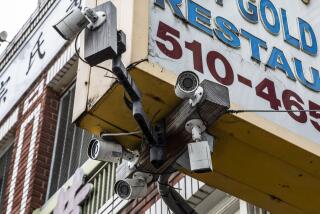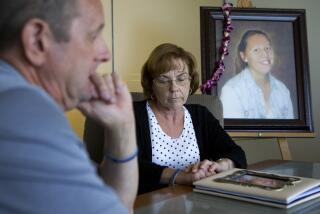Opinion: Is Big Brother the best way to build trust between cops and citizens?

Do people behave better when Big Brother is watching? In Rialto, Calif., the answer would appear yes. “A 2012-13 study at the Rialto Police Department showed that police used force less often and received fewer citizen complaints when wearing body cameras,” reports The Times, pointing to the promising results.
Now LAPD is giving it a try. From Richard A. Serrano and Joel Rubin’s report:
“ ‘Having a video record of events not only deters the use of excessive force, but it also helps dispute or demonstrate claims of police brutality,’ said Rep. Adam B. Schiff (D-Burbank), who is leading an effort to provide Justice Department grants for body cameras nationwide. …
“Schiff said the cost of cameras would more than pay for itself because the videos would discourage false lawsuits against the police. ‘The savings can be quite dramatic, through improved community relations and decreased litigation,’ he said.”
So, too, is the Denver police, which is reportedly planning to equip 800 officers with body cameras in 2015.
Cop cams might concern privacy advocates, but look around. We live in a surveillance society. And the upshot, as the Rialto pilot program has shown, is that it protects officers and citizens alike. As The Times editorial board wrote in November:
“Whether cameras are mounted on patrol cars or worn by the officers themselves, the idea is the same: to create an objective record of interactions between police and the public and, ultimately, to reduce conflict. Recording traffic stops, shootings and other encounters can help discourage — or document — police misconduct and can also serve to clear officers if they are falsely accused of wrongdoing.”
Robert Muggah, in a July 9 op-ed in our pages, concurred, saying cop cams are especially beneficial to citizens because the technologies monitor officers and “affect police behavior.”
“In a series of remarkable experiments from New York to Rio de Janeiro, new technologies are proving highly useful in helping to protect ordinary people from arbitrary arrest and extrajudicial violence,” he wrote. His bottom line: “Rather than having a chilling effect, the use of body cameras — cop cams — increased positive officer-citizen contact.”
Follow Alexandra Le Tellier on Twitter @alexletellier
More to Read
A cure for the common opinion
Get thought-provoking perspectives with our weekly newsletter.
You may occasionally receive promotional content from the Los Angeles Times.







